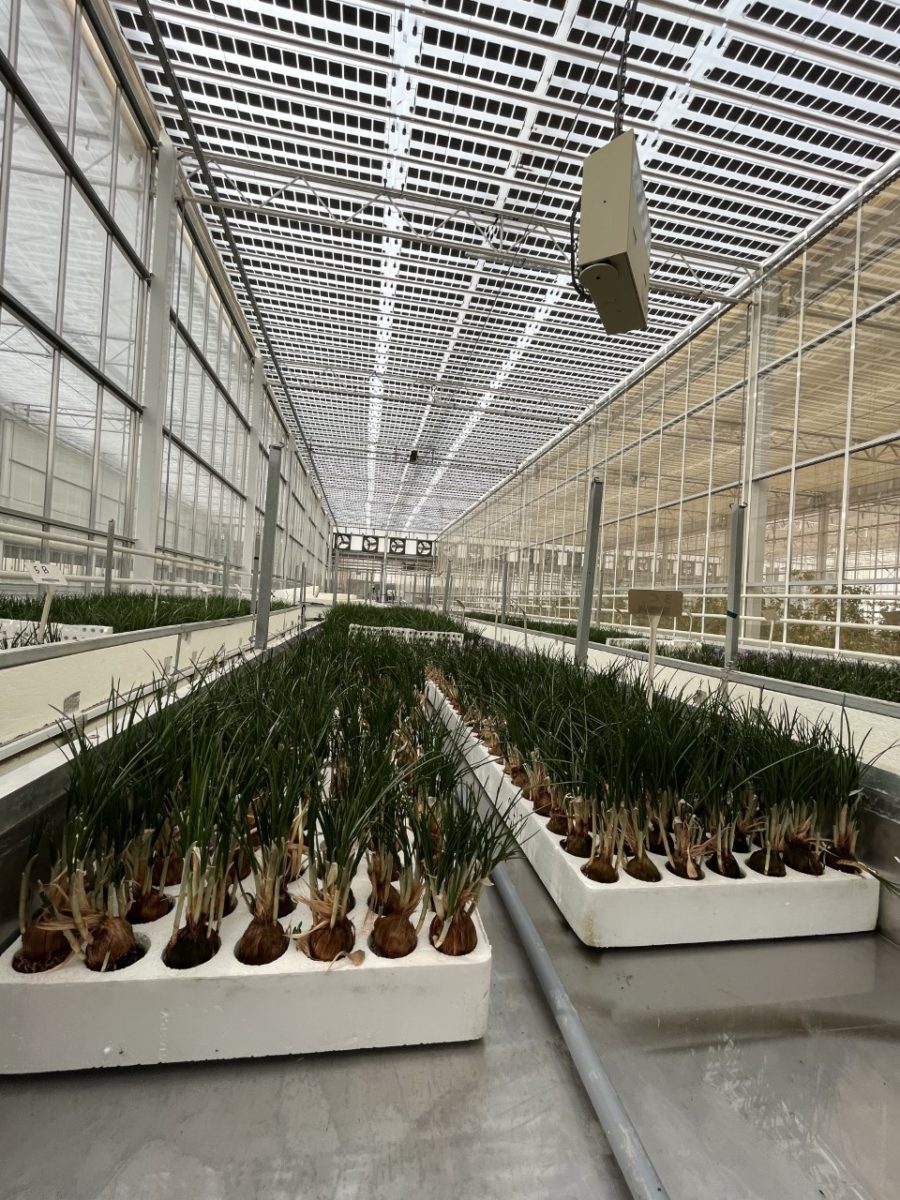From pv magazine Global
Mirai Solar, a spinoff of Saudi Arabia’s King Abdullah University of Science and Technology (KAUST), has developed a foldable, flexible and modular solar panel for agrivoltaic applications.
The semitransparent Mirai Screen module – or “PV shade screen,” as the company calls it – features monocrystalline silicon solar cells. It is suitable for deployment on greenhouses to generate energy and protect the plants from excessive sunlight.
The PV shade screens are specifically designed for locations with high solar radiation levels, where greenhouses are used for energy-intensive controlled environment agriculture (CEA).
“The performance depends on the shadowing level, which is customizable according to our client’s needs, and therefore the number of cells in the module,” said CEO Michael Salvador. “The advantage of the Mirai Screen is the retraction mechanism, which allows controlling the light availability for the plants – as in a conventional shade screen – coupled with the flexibility of using various types of crystalline silicon solar cells with high efficiency and stability. This grants our product advantages in performance and cost when compared with other PV technologies in this field.”
The proprietary screen design features a standard building block that is replicated over arbitrary areas to cover either all or part of the greenhouse area.
“This is important as greenhouse designs are not fully standardized,” Salvador told pv magazine. “The output power depends on the fraction of light transmission. We typically use solar cells with efficiencies over 22%.”
A 60% shading module has a nominal power of more than 100 W per square meter. The voltage of the screen depends on the size of the screen, which is a function of the greenhouse design. The voltage is typically around 25 V per building block and 300 V per screen section.
“Our screen was designed with a strong focus on reducing the weight of the module,” said Michele De Bastiani, director of R&D. “The glass-free design enables weight ranges below 1.5 kg per m2, which allows for its deployment inside the greenhouse using the same infrastructure as conventional shade screens. This also protects the PV from the environment, in particular soiling and hot temperatures, which are very common in desert regions.”
A typical installation does not feature heavy steel structures, but the company claims that this enables a simplified installation mechanism.
“The installation mechanism was co-developed with the German shade screen specialist Novavert,” said De Bastiani, noting that Mirai Solar is running multiple pilots in different locations and plans to introduce a turnkey system in the fourth quarter of 2023.
The company also holds intellectual property related to the optical properties and light management capabilities of the screen.
“The regions of the screen that are not involved in the electricity production are tailored for optimized light transmission and diffusion with a proprietary technology to avoid shadowing casted from the opaque cells,” said De Bastiani. “We are now planning to increase our production capacity.”
Mirai Solar manufactured the modules in Saudi Arabia, with the support of KAUST.
“Since we do not use glass or a metal frame and have a reduced [balance of system], our PV screens will be more cost effective than conventional PV technology with the scaling of the manufacturing process,” said De Bastiani. “The [levelized cost of electricity] depends on the geographic region and the level of insolation. We target locations with [levelized cost of electricity] of $0.03/kWh to $0.05/kWh.”
The company built three pilots in greenhouses in different regions.
“So far, the conclusion is that the biomass is on par with conventional shade screens,” said De Bastiani. “The economic benefit stems from optimizing energy and crop yield using our retraction technology.”
This content is protected by copyright and may not be reused. If you want to cooperate with us and would like to reuse some of our content, please contact: editors@pv-magazine.com.









By submitting this form you agree to pv magazine using your data for the purposes of publishing your comment.
Your personal data will only be disclosed or otherwise transmitted to third parties for the purposes of spam filtering or if this is necessary for technical maintenance of the website. Any other transfer to third parties will not take place unless this is justified on the basis of applicable data protection regulations or if pv magazine is legally obliged to do so.
You may revoke this consent at any time with effect for the future, in which case your personal data will be deleted immediately. Otherwise, your data will be deleted if pv magazine has processed your request or the purpose of data storage is fulfilled.
Further information on data privacy can be found in our Data Protection Policy.